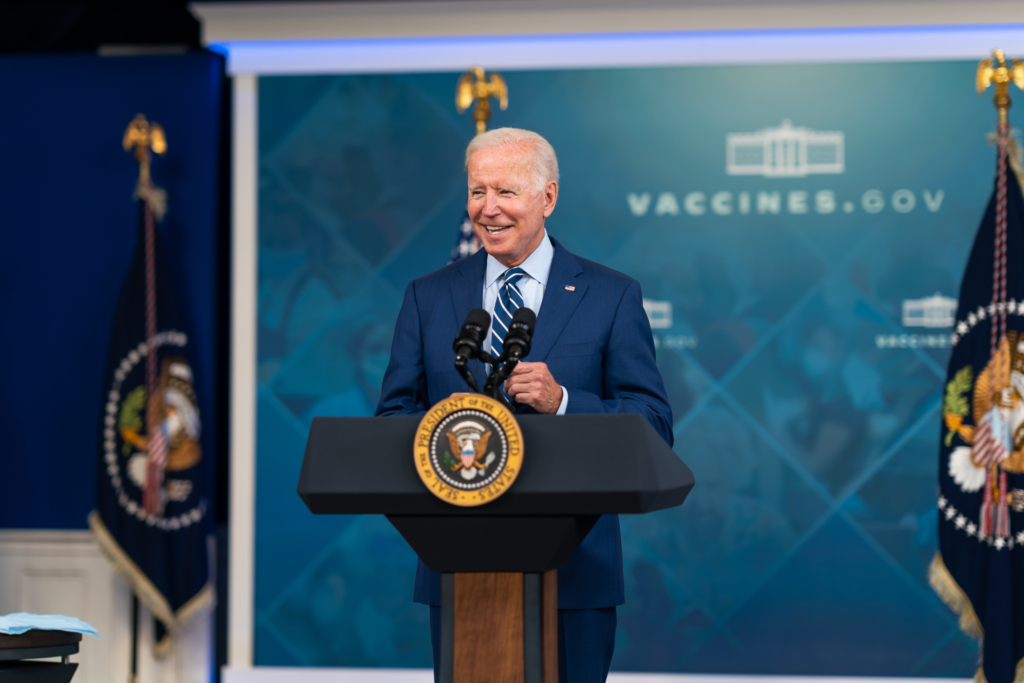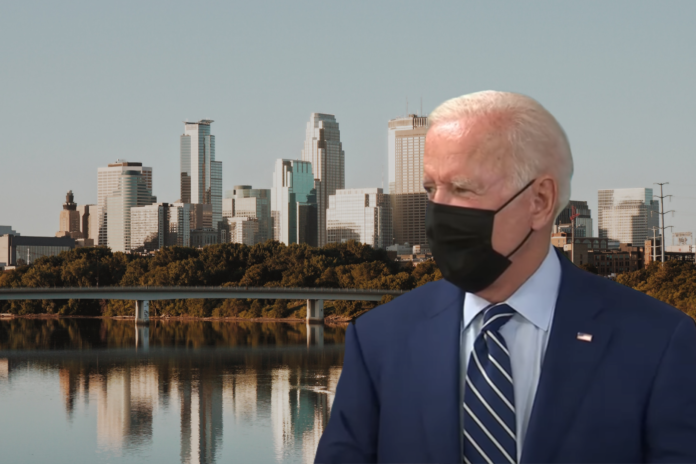It is nearly impossible for COVID-19 patients to receive monoclonal antibodies in the Twin Cities. Meanwhile, the Biden administration is actively restricting them.
Monoclonal antibodies are a safe and effective treatment for coronavirus that work by supplementing a patient’s natural immune response to help fight the virus, according to MSNBC. Like the coronavirus vaccine, infusions of the antibodies “can protect people from developing symptomatic COVID-19,” reports Science. They are “absolutely the standard of care for COVID-19,” Erin McCreary, a director at the University of Pittsburgh Medical Center, told The Washington Post.
Yet despite this treatment’s proven record and glowing endorsements from frontline workers, monoclonal antibodies are basically unavailable to the 3.5 million residents of the Minneapolis-St. Paul metro area. As a result, COVID patients in the cities often find themselves driving hours into greater Minnesota to get treatment.
“It’s not fair to metro patients, many of whom have more transportation and other challenges to get to greater Minnesota if they’re told: ‘Hey, you’ve got a spot, but you’ve got to drive three hours,'” JP Leider, a public health researcher at the University of Minnesota, told the Star Tribune. “It’s [also] not fair to greater Minnesota that metro health systems continue to not offer this at scale.”
“The problem is too few of us are giving this treatment” in the metro area, Dr. Venkat Iyer, a director at Allina Health Group, told the Tribune.
The reason so few health care facilities offer monoclonal antibodies is simple: the government seems to prefer vaccines to any other means of quelling the pandemic.
Experts believe that the federal government has not done enough to bolster the production and distribution of the antibodies, instead only opting to develop the logistical infrastructure needed to produce and distribute the vaccine, according to The Washington Post.
“For the administration, mum’s the word on monoclonal antibodies, rapid home tests, high quality masks … anything except vaccines,” Eric Topol, the founder of the Scripps Research Translational Institute, told the Post. He believes this vaccine-only approach “is wrong, since we need every tool in the kit to effectively take on delta; we’re not doing that well at all.”

Rather than bolstering the availability of monoclonal antibodies, a measure that is desperately needed in places like Minneapolis, the administration has clamped down on this treatment. The decision to restrict all antibody treatments came just one week after the president vowed to increase distribution, an apparent contradiction noted by Forbes.
Biden has also placed extra restrictions on seven red states in the American southeast that account for the most monoclonal antibody use: Texas, Florida, Mississippi, Tennessee, Georgia, Louisiana and Alabama.
“It is regrettable that the Biden administration would play politics with people’s lives during a pandemic by withholding a life-saving treatment and providing mixed messages to Americans,” said Christina Pushaw, a spokeswoman for Florida Gov. Ron DeSantis.
Congressman Chip Roy from Texas has also called for the U.S. Department of Health and Human Services “to explain why and how it is interfering with distribution of monoclonal antibodies.”
Several other leaders from the seven restricted states have issued similar statements.
Like the Biden administration, the media have also done their best to disparage use of monoclonal antibodies.
When former President Donald Trump caught coronavirus, he received antibodies produced by Regeneron and said he immediately felt better. Journalists and self-described fact checkers were quick to swoop in, discouraging antibody treatment.
“The products are still in clinical trials and have not been proven to be effective for COVID-19 patients,” factcheck.org wrote. At that time, no coronavirus vaccine had exited the trial phase. Still today, only one has received full approval.
When MMA commentator and podcast superstar Joe Rogan took monoclonal antibodies to aid his recovery from coronavirus, the media mocked him and attempted to paint his alternative treatment approach as being at odds with scientific consensus.
The mainstream media also seem concerned that if antibody treatments catch on as a remedy for coronavirus, some Americans may see their effectiveness and decide they don’t need the vaccine. National outlets as well as local ones from Kentucky and Tennessee to Alaska and Hawaii are invested in convincing their readers that they still need the shot.
















